

E-Books → ESD Protection Device and Circuit Design for Advanced CMOS Technologies
Published by: voska89 on 31-08-2022, 17:58 |  0
0
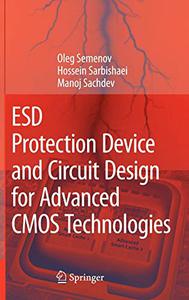
ESD Protection Device and Circuit Design for Advanced CMOS Technologies by Oleg Semenov, Hossein Sarbishaei, Manoj Sachdev
English | PDF | 2008 | 237 Pages | ISBN : 1402083009 | 9.4 MB
The challenges associated with the design and implementation of Electrostatic Discharge (ESD) protection circuits are becoming increasingly complex as technology is scaled well into nano-metric regime. Traditional approaches of ESD design may not be adequate as the ESD damages occur at successively lower voltages in nano-metric dimensions. There are several challenges that must be met in order to design robust ESD circuits today. Due to technology scaling and proliferation of automated handling, ESD failures in ICs caused by Charged Device Model (CDM) are increasing. CDM discharges can cause latent damages which could degrade and eventually lead to definite failures in the ICs. The ESD protection design for current and future sub-65nm CMOS circuits is a challenge for high I/O count, multiple power domains and flip-chip products.
Video Training → Electronic Circuit Simulation Using Proteus Professional
Published by: voska89 on 27-08-2022, 02:37 |  0
0

Instructors: Pradeep Raj | 2 sections • 8 lectures • 49m total length
Video: MP4 1280x720 44 KHz | English + Sub | Updated 1/2022 | Size: 538 MB
Learn Circuit Design and Circuit Simulation using Proteus Professinal
E-Books → Microwave Integrated Circuit Components Design through MATLAB®
Published by: voska89 on 13-08-2022, 02:54 |  0
0
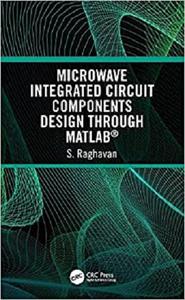
Microwave Integrated Circuit Components Design through MATLAB® by S Raghavan
English | December 2, 2019 | ISBN: 0367243121 | 195 pages | MOBI | 16 Mb
MICROWAVE INTEGRATED CIRCUIT COMPONENTS DESIGN THROUGH MATLAB®
E-Books → Asynchronous Circuit Applications (Materials, Circuits and Devices)
Published by: voska89 on 13-08-2022, 01:27 |  0
0
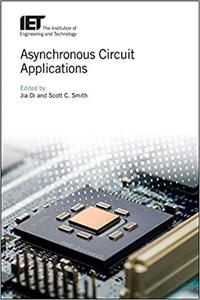
Asynchronous Circuit Applications (Materials, Circuits and Devices) by Jia Di, Scott C. Smith
English | January 2, 2020 | ISBN: 1785618172 | 368 pages | MOBI | 9.33 Mb
Unlike conventional synchronous circuits, asynchronous circuits are not coordinated by a clocking signal, but instead use handshaking protocols to control circuit behaviour. Asynchronous circuits have been found to offer several advantages, including high energy efficiency, flexible timing requirements, high modularity, low noise/EMI, and robustness to PVT variations. At the same time, growing pressures on the electronics industry for ever smaller, more efficient ICs are pushing the limits of conventional circuit technologies. These factors are spurring growing interest in asynchronous circuits amongst both the academic research and commercial R&D communities.
E-Books → Analog Circuit Design for Process Variation-Resilient Systems-on-a-Chip
Published by: voska89 on 28-07-2022, 22:31 |  0
0
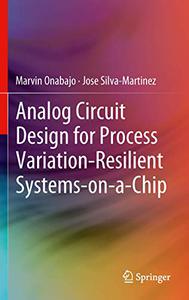
Analog Circuit Design for Process Variation-Resilient Systems-on-a-Chip by Marvin Onabajo
English | PDF | 2012 | 182 Pages | ISBN : 1461422957 | 7.1 MB
This book describes several techniques to address variation-related design challenges for analog blocks in mixed-signal systems-on-chip. The methods presented are results from recent research works involving receiver front-end circuits, baseband filter linearization, and data conversion. These circuit-level techniques are described, with their relationships to emerging system-level calibration approaches, to tune the performances of analog circuits with digital assistance or control. Coverage also includes a strategy to utilize on-chip temperature sensors to measure the signal power and linearity characteristics of analog/RF circuits, as demonstrated by test chip measurements.
E-Books → Ultra-low Voltage Circuit Techniques for Energy Harvesting
Published by: voska89 on 24-07-2022, 23:11 |  0
0
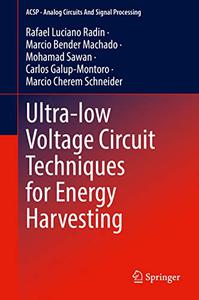
Ultra-low Voltage Circuit Techniques for Energy Harvesting
English | 2023 | ISBN: 3031044916 | 161 Pages | PDF (True) | 9 MB
This book provides design-oriented models for the implementation of ultra-low-voltage energy harvesting converters, covering the modeling of building blocks such oscillators, rectifiers, charge pumps and inductor-based converters that can operate with very low supply voltages, typically under 100 mV. Analyses based on the diode and MOSFET models are included in the text to allow the operation of energy harvesters from voltages of the order of 100 mV or much less, with satisfactory power efficiency. The practical realization of different converters is also addressed, clarifying the design trade-offs of ultra-low voltage (ULV) circuits operating from few millivolts.
E-Books → Circuit Analysis with Multisim
Published by: voska89 on 24-07-2022, 22:13 |  0
0
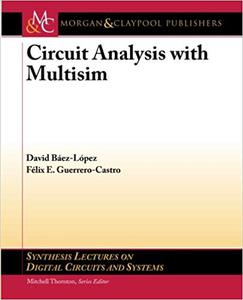
Circuit Analysis with Multisim by David Báez-López, Félix E. Guerrero-Castro
English | 2011 | ISBN: 1608457567 | 198 Pages | PDF | 7.7 MB
This book is concerned with circuit simulation using National Instruments Multisim.
E-Books → Jaynes E Circuit Analysis by Laplace and Fourier Transforms 1945
Published by: Emperor2011 on 24-07-2022, 14:40 |  0
0

Jaynes E Circuit Analysis by Laplace and Fourier Transforms 1945 | 2 MB
N/A | 36 Pages
Title: D:\larry\Output.prn.pdf
Author: bmr
Year: N/A
E-Books → Madhu S Linear Circuit Analysis 1988
Published by: Emperor2011 on 24-07-2022, 14:37 |  0
0

Madhu S Linear Circuit Analysis 1988 | 254.95 MB
English | 1124 Pages
Title: Linear Circuit Analysis
Author: S. Madhu
Year: 1988
E-Books → Circuit Analysis for Power Engineering Handbook
Published by: voska89 on 18-07-2022, 12:01 |  0
0
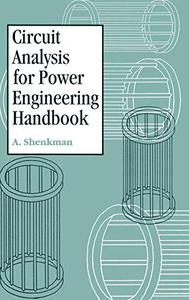
Circuit Analysis for Power Engineering Handbook by Arieh L. Shenkman
English | PDF | 1998 | 740 Pages | ISBN : 0412831805 | 40.1 MB
The study of circuits is the foundation on which most other courses in the electrical engineering curriculum are based. For this reason the first course in circuit analysis must be appropriate to the succeeding specializations, which may be classified into two groups. One is a specialization in electro nics, microelectronics, communications, computers etc. , or so-called low current, low-voltage engineering. The other is in power electronics, power systems, energy conversion devices etc. , or so-called high-current, high voltage engineering.



